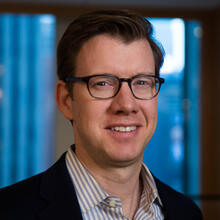Joe Biden suffered a father’s greatest loss, yet he still has hope.
Will he or won’t he? The answer hovers over Joe Biden’s new memoir, Promise Me, Dad, which ends with his decision not to run for president in 2016, but raises the question of whether he will try again in 2020. But the book is not really about Biden’s political past or future as much as it is about his family’s struggle to deal with his son Beau’s brain cancer. It is the story of a father who, having lost a wife and daughter in a car accident 45 years ago, must once again reckon with the greatest loss any one person can ever be asked to endure.
There is plenty of politics here, of course. Biden deals with his grief by keeping busy, and as then-vice president of the United States, that means fielding emergency calls on the march of the Islamic State and bolstering our Ukrainian allies as they face down aggression from Vladimir Putin. What the reader encounters is a man who, far from the “gaffe machine” heckled mercilessly by critics, really knows his stuff, particularly in international affairs.
Joe Biden’s deep love for his son is evident on every page of Promise Me.
Biden was very close to saying yes to running, in part because of his own ambition, but also because Beau wanted him to. As Beau underwent treatment, the idea that dad might run gave hope to the whole family.
Joe Biden’s deep love for his son is evident on every page of Promise Me, whether he is recounting their annual trips to Nantucket for Thanksgiving or the gut-punch of a conversation that gives this book its title.
When he is tempted to give up or break down, and especially when Beau finally loses his battle in May 2015, Biden turns to his rosary for consolation. He does not say too much about his faith, but the fact that he still soldiers on is evidence of a deep resolve. When he says that his sense of justice and fairness “flows from the teachings of the Catholic Church,” you take him at his word.
This article also appeared in print, under the headline “Joe’s long run,” in the December 25, 2017, issue.












